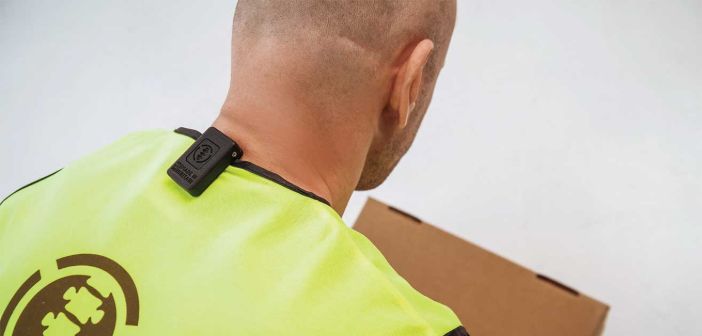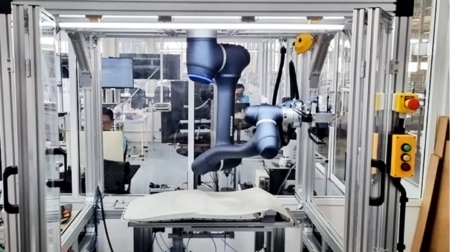Logistics firm Wincanton is deploying AI-powered wearable technology in its warehouses, to improve health and safety.
Through its W2 Labs programme, which aims to encourage start-ups and emerging suppliers to pitch supply chain digitisation solutions, the company has worked with Soter Analytics to trial wearable sensors designed to reduce the risk of musculoskeletal injury in the warehouse.
Wincanton utilised two solutions from Soter Analytics to reduce the risk of ergonomic injuries among colleagues. SoterSpine is focused on lifting activities, such as picking operations, while SoterShoulder is designed for pushing activities such as roll cage movements and home deliveries.
Both solutions consist of a lightweight wearable sensor worn on the collar of workwear, close to the shoulder or spine. The device measures and monitors the wearers at-risk movements, providing real-time audible, vibration and visual biofeedback.
This software platform uses an algorithm to identify problematic movements and the risk of ergonomic injuries with all data collated for deeper analysis on the management dashboard.
AI then creates a personalised coaching programme for individual Wincanton colleagues to prevent back and shoulder injuries in the workplace.
Additionally, if a colleague is returning to work after experiencing an injury the Soter devices will capture data to mitigate further injuries, which in turn provides training to manage the avoidance of re-injury.
Soter Analytics is used across eight operations at Wincanton and the partnership report it has delivered a 30% reduction in spine hazards per hour, reducing incidences of poor bending, back twisting and repetitive movements for colleagues in the warehouse.
Guillaume Le Goff, chief commercial officer at Soter Analytic, said: “We could see a big ambition of the business to use technology to drive improvement and the opportunity to work together to make this possible has been a fantastic achievement.”








